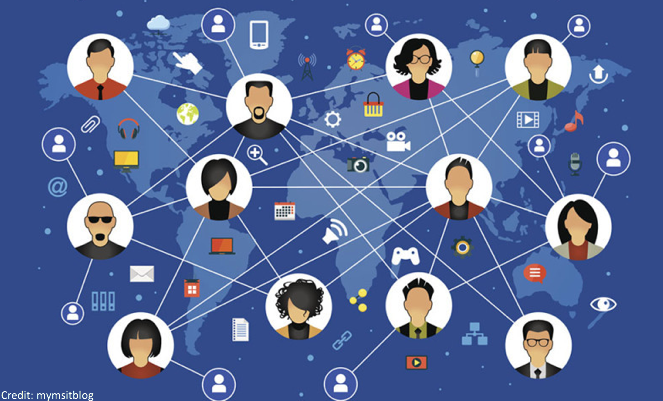Video Games And Grief: How Virtual Worlds Help Process Loss

Grief is a deeply personal journey that manifests itself differently for each individual. In recent years, video games have developed as unconventional but powerful tools to support the mourning process. These digital spaces offer refuge, reflection and healing from interactive stories to support the multiplayer community support. Games cannot serve as trivializing pain as an immersive companion that help the players stand up and work through emotions in connection with loss.
By creating a room in which difficult feelings are recognized and researched, games can promote emotional resistance. Regardless of whether players are looking for a distraction, comfort or connection, video games often offer opportunities for emotional commitment that traditional coping strategies may be missing.
Emotional storytelling as an expression form
Many modern games deal directly with grief and portrays nuanced emotional trips that are well received by the players. Title like This dragon, cancer or Gris Offer introspective stories in which players in a structured environment can get in touch with grief, acceptance and recovery. These games are not just passive stories. You ask the players too live through Pain, often she reflects her own experiences.
Such emotionally rich experiences enable players to externalize their grief and give intangible emotions form. In this way, video games become a safe space to express what is often unspeakable. The interactive nature of these titles deepens the emotional effect and offers moments of Katharsis and clarity.
In addition, storytelling often includes symbolism and metaphor in games, which makes it easier for players to confront painful memories without experiencing them directly. This can be particularly helpful for people who have difficulty articulating their feelings in traditional therapeutic contexts. Due to the mixture of narrative depths with the player agency, this experiences invite you to feel emotional possessions, self-reflection, resilience and gradual healing over time. The result is an interactive narrative journey that not only tells a story about grief, but also about grief, but also Experience threads The player by the fact that personal transformation in digital space can develop.
Online Communities and joint healing

In multiplayer or online co-op settings, video games offer a double function: they offer distraction and create paths for the connection. Mourning players often find comfort in play -based communities where other similar losses can share. Regardless of whether it is a campaign with a friend or only chatting in a lobby, these interactions help to rebuild a feeling of normality and connection.
In addition, specific online platforms and forums have made it possible to discuss the loss and to think, whereby a digital tapestry is woven. This even expanded into memorials with motifs and homes in the game, in which communities gather in order to honor lost relatives. In these interactive environments, players often explore game functions such as creative creation, storytelling or competition games. In fact, platforms that include functions such as CSGO happiness pages also offer social elements that promote the community and help some users to find comradeship and joint experiences in emotionally challenging times.
This municipal aspect of play underlines its potential to combat isolation – a common side effect of grief. The visual ends of bonds in these virtual environments can serve as a first step towards emotional re -connection and recovery.
Therapeutic advantages of virtual escapism
Escapism through video games is no avoidance. Rather, it can act as a temporary relief of the severe weight of mourning. Intrisive environments such as adventure open world or challenges with puzzle solution enable the individual, mentally to be mentally overwhelming thoughts and feelings.
Games like Valley or Animal crossing Offer a gentle, non -confrontative gameplay that calms rather than overstimulated. They enable users to regain a feeling of control, set goals and rebuild a daily rhythm – all essential components in recovery of emotional trauma. For some, the return to these safe and peaceful virtual worlds serves as a decisive anchor in times of instability.
In addition, the act of playing can stimulate dopamine production and offer a natural mood thrust. This neurochemical reaction helps to counteract emotional deafness that is often experienced during grief.
Mourning and narrative validation
Another powerful aspect of video games is your ability to validate the grief experience by portraying it directly. This can convey a feeling of solidarity for those who feel isolated in their grief. If you reflect your experiences through characters, environments and decisions, the players feel recognized and less alone.
In addition, such games often contain options that players can use to determine how their avatar reacts to grief. These branching paths promote self -observation and enable users to process their feelings in a sensible way. Developers who approach the topic with sincerity and care contribute to a broader cultural understanding of loss and healing.
These narrative techniques can normalize discussions about grief and encourage more people to participate in open dialogue about their own experiences. Games not only become a source of the comfort, but also a medium for emotional education.
The future of games as emotional tools
With progress in virtual reality (VR) and AI, video games become increasingly emotional resonants. VR titles enable profound mourning experiences in which users can simulate conversations with digital representations of relatives or experience significant memories in a controlled and safe environment.
Therapists and specialists for mental health also begin to include game elements in mourning advice. This marks a significant change in the perception of the games of society – not only as entertainment, but as tools for personal growth, reflection and healing.
In the future we may see the development of specialized therapeutic games developed in cooperation with psychologists to support the recovery of grief. These innovations could redefine how digital tools are used to support emotional well -being.
Diploma
Grief is never easy, but video games offer a unique and developing opportunity to support this loss of navigation. Whether by emotional storytelling, community connection, virtual escapism or direct mourning, games offer a diverse healing resource for healing. With the progress of technology, the therapeutic skills of these virtual worlds will also help to find more people in times of mourning.
By recognizing games as emotional tools and not as mere distractions, we open the door for innovative approaches in the support of mental health – his, which reflect the complex and deep human process of mourning.





